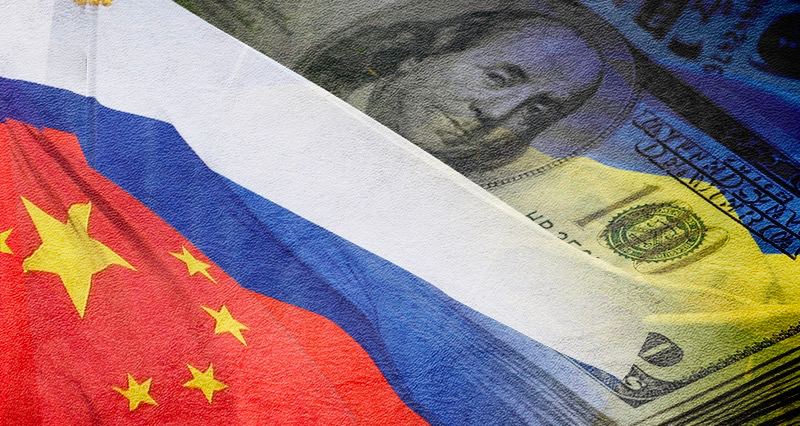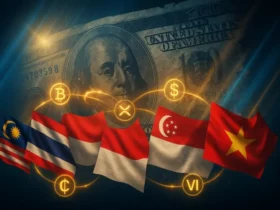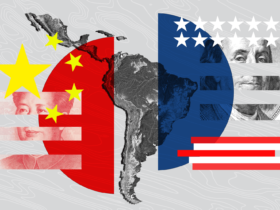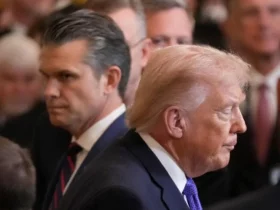By Orçun Göktürk/ Beijing, China
Russian leader Putin was the last guest of honor at the Great Hall of the People in Tiananmen Square, the heart of Beijing. In France during Xi’s European tour, Macron and von der Leyen said “use your influence on Moscow and stop Russian aggression”, to which Xi responded by calling Putin a “sincere comrade”.
“No-Limits Partnership” progresses
Shortly before launching the military intervention in Ukraine against NATO and its pawn Zelenskyy’s regime, Putin had visited China, where he and Xi announced that Russian-Chinese relations were a “No-limits Partnership”. At the end of last year, Xi, who was elected President for the third time at the CPC General Congress for the first time since Mao, made his first foreign visit to Russia. Putin, who was re-elected President of Russia, likewise chose China as his first foreign visit.
Putin was first hosted at the Great Hall of the People and then at the official residence in Zhongnanhai, the heart of the CPC, where no state leader had been invited for 10 years. After the meeting, Xi told Putin that the two countries have “a chance to bring about changes the world has not seen in a century”, reinforcing the West’s view that China is “attempting to challenge the US-led global order”. Washington, too, has made it clear in its national threat reports that it sees China as its biggest rival and Russia as its biggest nation-state threat.
The joint statement emphasized deepening the strategic relationship and mentioned plans for further military ties and how defense sector cooperation between the two countries has enhanced regional and global security.
The Chinese state agency Xinhua conducted a detailed interview with Putin ahead of the visit (1). Putin’s statement that “during World War II, Soviet and Chinese soldiers stood up together against Japanese militarism and the Nazis” is very important. It is a historical reminder that Russia and China would be on the same footing in a possible all-out war against Western aggression.
Leading the way to de-dollarization
In 2015, trade between the two countries in national currencies accounted for 5 percent of the total volume, but today this figure is more than 90 percent. In other words, China and Russia have achieved de-dollarization in trade. We are talking about a total trade volume close to 230 billion dollars. This is very important for developing countries like Türkiye, which has dollarization problems. Of course, we are still at the beginning of the de-dollarization process, the dollar is still the most used currency in world trade. But there is a sharp decline, and this trend is continuing. In 1999, the dollar dominated world trade by more than 70 percent, but in 2021, it fell to 59 percent. We can see the details of this in a report released by the IMF in March 2022 (2).
The two countries’ enthusiasm for trade in national currencies constitutes an important opportunity for dozens of countries suffering from imperialist exploitation. This is evidenced by the fact that nearly 30 countries are lining up to join BRICS+, the initiative led by Russia and China (3).
The critical issue on the table: Ukraine
Going back to the Xi-Putin meeting, one of the most important topics on the agenda of the two leaders was Ukraine. China is under great pressure from the US and the EU on the Ukraine issue. We have seen this both in the visit of the US Ministers to China and in Xi’s visit to Europe, where he met with Ursula von der Leyen and Macron in France. In addition, more than 170 Chinese individuals and organizations are already on the US sanctions list.
Last month, during a visit to Beijing, US Secretary of State Antony Blinken ‘warned’ China against fueling Russia’s war and to stop trading in Russian drones and components for tanks.
China’s response to the West’s ‘warnings’ was to give Putin a tour of a state-funded university renowned for advanced defense research during his visit to the city of Harbin, his next stop after Beijing.
Of course, there are different views on the Ukraine issue within China. Readers can find the details in the article titled “China’s shrinking room for maneuver in foreign policy” we wrote in this column on 6th May (4). No need to go into the details here again, but it is necessary to say that the Chinese big bourgeoisie, which defends close relations with the US in the struggle for two lines within China, is disturbed by Putin’s visit.
In this sense, Xi’s statement on the Ukraine issue, which takes this opposition into account, should be noted. Xi gave a moderate message to both the West and the country by stating that a ‘political solution’ is the right direction in the Ukrainian crisis and that they are “against prolonged conflict” (5).
Putin, for his part, expressed his gratitude to China for its efforts to resolve the Ukrainian crisis, adding that Russian forces were advancing on many fronts and that he would brief Xi in detail on the latest situation, adding: “We have never rejected negotiations. We seek a comprehensive, sustainable and just solution to this conflict through peaceful means. We are open to dialogue on Ukraine, but it must take into account the interests of all countries involved in the conflict, including Russia’s.” (6)
“The efforts of China and President Xi are important, but unfortunately neither Ukraine nor its Western patrons support these initiatives. (…) Western elites are stubbornly working to ‘punish’, isolate and weaken Russia, providing Kyiv authorities with money and weapons,” Putin said in an interview with Xinhua, suggesting that the crisis could be resolved first with military force and then with diplomacy. The message was not only to the West but also to his Chinese friends.
Joint manifesto
The two countries announced the “A Joint Statement on Deepening the China-Russia Comprehensive Strategic Partnership of Coordination for the New Era” for the 75th anniversary of diplomatic relations is a manifesto (7). Let us summarize the highlights:
• China-Russia relations have been repeatedly tested in changing international situations, emphasizing stability and resilience, and are at their best level in history.
• Both sides note the accelerating evolution of major changes in the world, the growing status of rising powers in the countries and regions of the “Global South”, and the rapid emergence of multipolarity in the world.
• These objective factors have accelerated the redistribution of development potential, resources and opportunities in favor of emerging markets and developing countries and contributed to the democratization of international relations and international justice. However, countries that cling to hegemony and power politics oppose this by seeking to replace and subvert the universally accepted international order based on international law with a “rules-based order”.
• In the process of building a multipolar world, China and Russia, as independent powers, will fully explore the potential of their relationship, promote the equal and orderly multipolarization of the world and the democratization of international relations, and combine efforts to build a just and rational multipolar world.
• The two sides plan to jointly celebrate the 80th anniversary of the victory of the Chinese People’s War of Resistance against Japan and the USSR Patriotic War in 2025 to jointly promote a correct view of the history of the World War II.
Learning Mandarin Chinese
Putin also said that his family learned Mandarin Chinese. This is particularly noteworthy because Putin is a leader who rarely talks about his family and children in public.
Finally, Putin said that he and Xi are “as close as brothers” and that China’s economy is “developing at a fast pace and at a great speed,” in a sort of response to the “risk of stagnation in China’s economy” rhetoric in the West.
During his trip to China, Putin brought along the head of the Russian Central Bank, the finance minister and economic advisors. In a sense, this shows Russia’s need for China’s economic support.
After the joint statement, Putin and Xi attended the celebrations marking the 75th anniversary of the Soviet Union’s recognition of the People’s Republic of China, which was established after the Great Chinese Revolution led by Mao Zedong.
(1) Xinhua News Agency. (2024, May 15). Full text of Xinhua’s interview with Putin. https://english.news.cn/20240515/087c8ea9d6a040f1adb06eb818179ebe/c.html
(2) IMF. (2022, March). https://www.imf.org/en/Publications/WP/Issues/2022/03/24/The-Stealth-Erosion-of-Dollar-Dominance-Active-Diversifiers-and-the-Rise-of-Nontraditional-515150?cid=em-COM-123-44496
(3) TASS. (2024, February 27). https://tass.com/world/1751865
(4) Orçun Göktürk. (2024, May 6). United World. China’s shrinking room for maneuver in foreign policy. https://unitedworldint.com/34445-chinas-shrinking-room-for-maneuver-in-foreign-policy/
(5) Nikkei Asia. (2024, May 16). Xi Jinping and Vladimir Putin agree to bolster trade amid ‘storms’. https://asia.nikkei.com/Politics/International-relations/Xi-Jinping-and-Vladimir-Putin-agree-to-bolster-trade-amid-storms
(6) Global Times. (2024, May 15). Putin says China clearly understands roots of Ukraine crisis. https://www.globaltimes.cn/page/202405/1312363.shtml
(7) China News (2024, May 16). 中华人民共和国和俄罗斯联邦在两国建交75周年之际关于深化新时代全面战略协作伙伴关系的联合声明 . https://m.chinanews.com/wap/detail/zw/gn/2024/05-16/10217948.shtml

















Leave a Reply